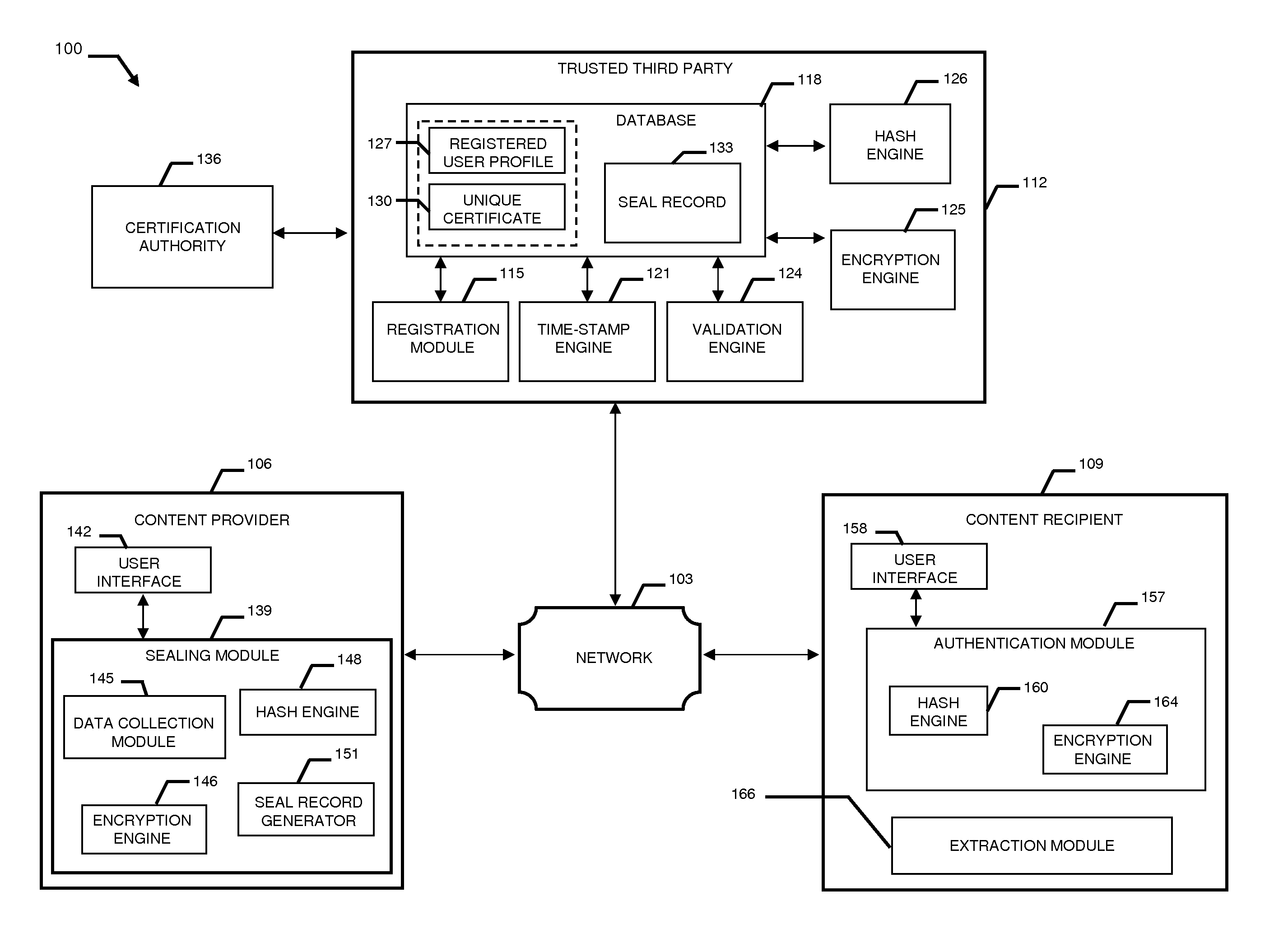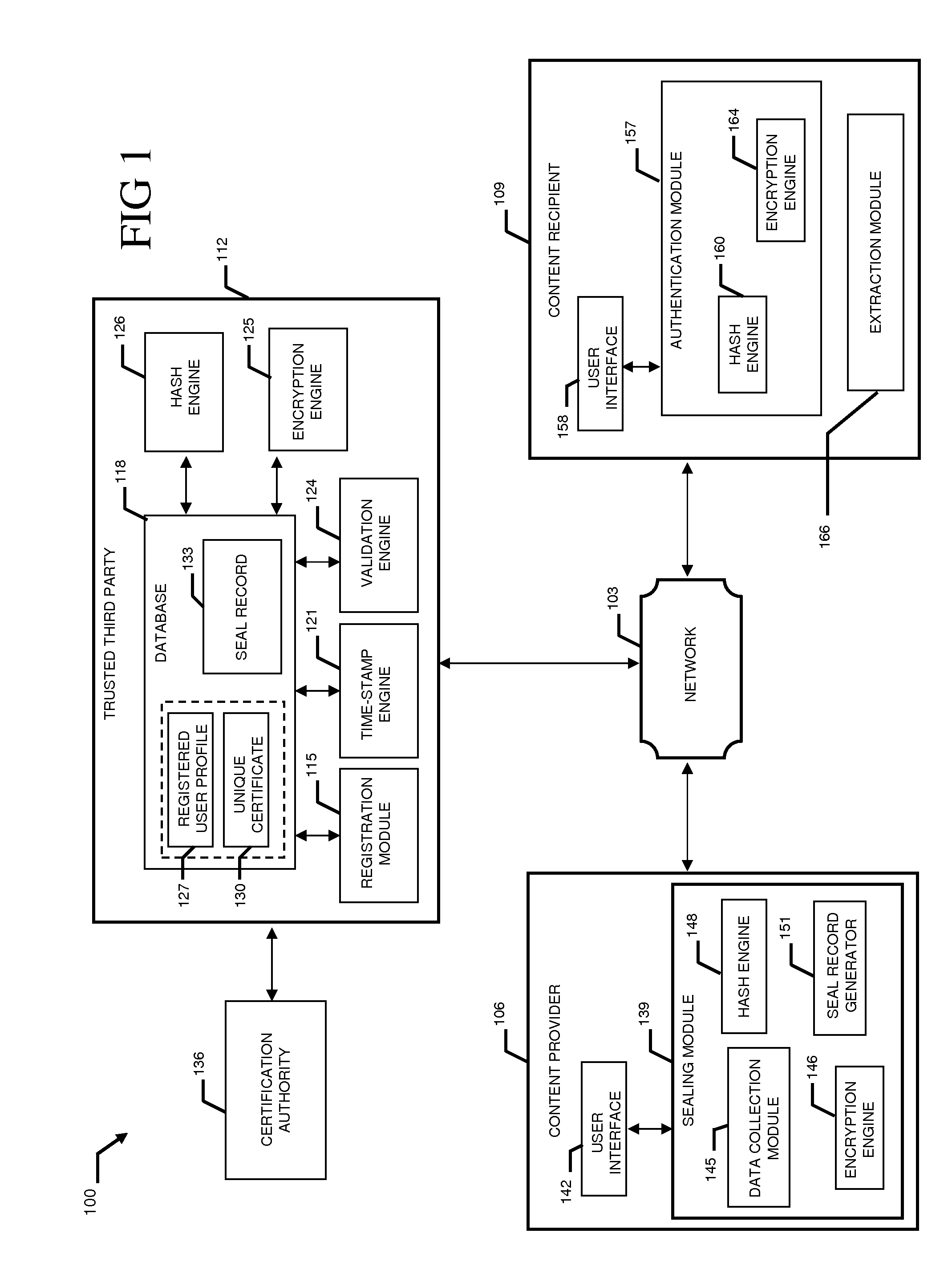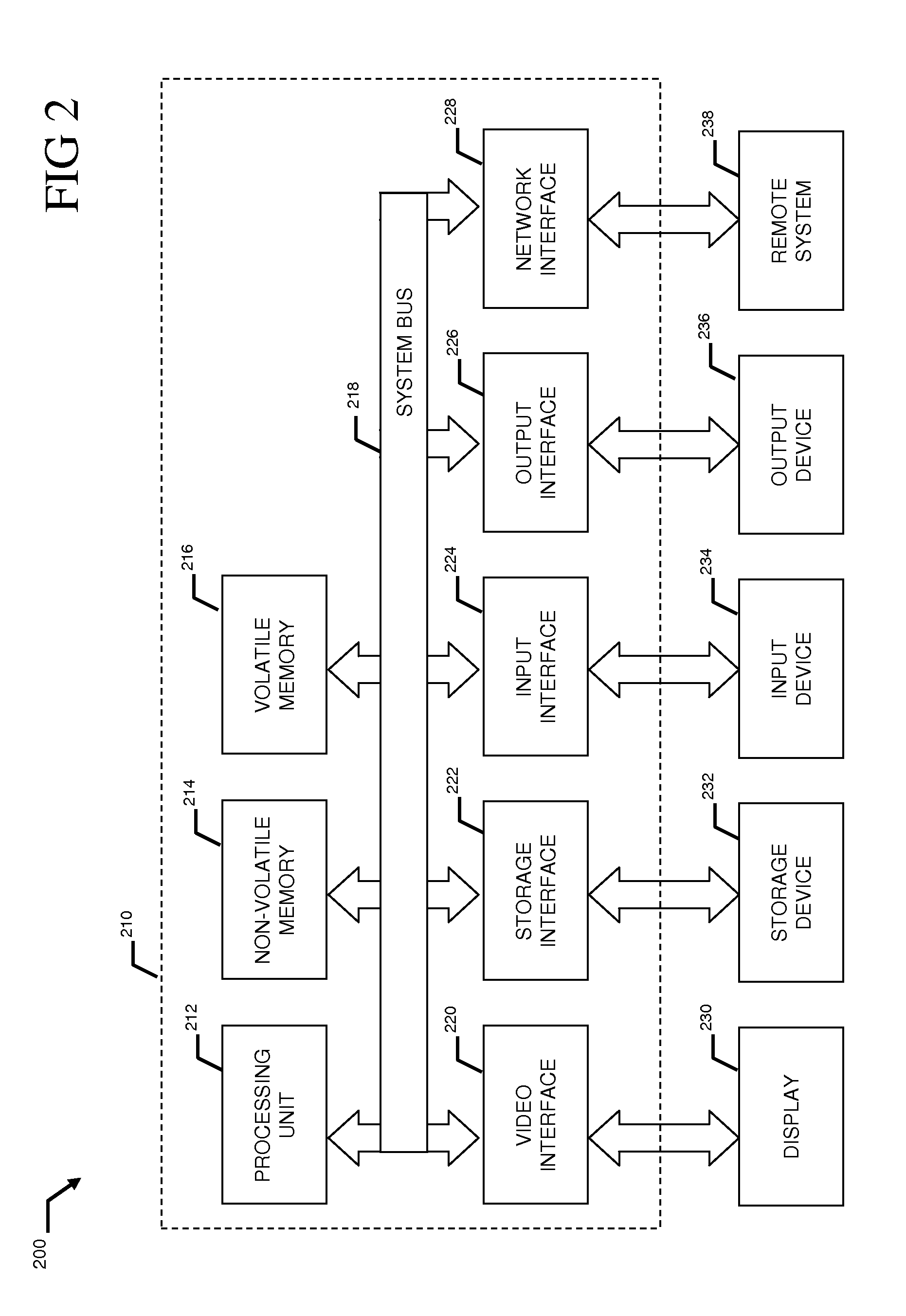System and method to validate and authenticate digital data
a digital data and system technology, applied in the field of systems and methods to validate and authenticate digital data, can solve the problems of corrupted and malicious data provided by users, easy corruption of electronic data, and subsequent corruption of stored data
- Summary
- Abstract
- Description
- Claims
- Application Information
AI Technical Summary
Benefits of technology
Problems solved by technology
Method used
Image
Examples
Embodiment Construction
[0048]Referring now in detail to the drawing figures, wherein like reference numerals represent like parts throughout the several views, FIG. 1 displays component structures of a validation and authentication system 100 for validating and authenticating digital content from a potentially unverified source to ensure digital content is not tampered with or corrupt. The validation and authentication system 100 assist in retaining the legal admissibility and evidential weight of the digital content. The present invention provides a considered and holistic security approach to ensure that received digital content can be trusted and represents the true intention of the originator of the digital content.
[0049]The validation and authentication system 100 of the present invention provides technical components that have been developed to meet “best practice” procedures and security requirements of an established series of codes or practices (e.g., the British Standards Institute Codes of Prac...
PUM
 Login to View More
Login to View More Abstract
Description
Claims
Application Information
 Login to View More
Login to View More - R&D
- Intellectual Property
- Life Sciences
- Materials
- Tech Scout
- Unparalleled Data Quality
- Higher Quality Content
- 60% Fewer Hallucinations
Browse by: Latest US Patents, China's latest patents, Technical Efficacy Thesaurus, Application Domain, Technology Topic, Popular Technical Reports.
© 2025 PatSnap. All rights reserved.Legal|Privacy policy|Modern Slavery Act Transparency Statement|Sitemap|About US| Contact US: help@patsnap.com



